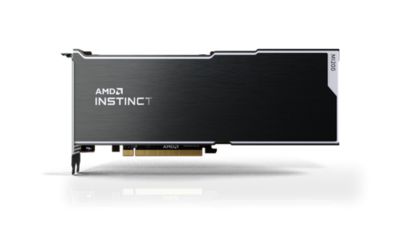-
-
Kostenlose Software für Studierende
Ansys unterstützt die nächste Generation von Ingenieur*innen
Studenten erhalten kostenlosen Zugang zu erstklassiger Simulationssoftware.
-
Verbinden Sie sich jetzt mit Ansys!
Gestalten Sie Ihre Zukunft
Stellen Sie eine Verbindung mit Ansys her, um zu erfahren, wie Simulation Ihren nächsten Durchbruch vorantreiben kann.
Länder und Regionen
Kostenlose Demoversionen
Produkte & Dienstleistungen
Lernportal
Über das Unternehmen
Back
Produkte & Dienstleistungen
Back
Lernportal
Ansys unterstützt die nächste Generation von Ingenieur*innen
Studenten erhalten kostenlosen Zugang zu erstklassiger Simulationssoftware.
Back
Über das Unternehmen
Gestalten Sie Ihre Zukunft
Stellen Sie eine Verbindung mit Ansys her, um zu erfahren, wie Simulation Ihren nächsten Durchbruch vorantreiben kann.
Kostenlose Demoversionen
ANSYS BLOG
October 12, 2022
Improve Simulation with the Latest GPU-Based HPC Technology
The need for faster, more frequent, and more complex simulation and analysis in engineering is rapidly outpacing the amount of compute capacity available at many organizations. At Ansys, we have leveraged high-performance computing (HPC) in the areas of parallel, parametric, and cloud computing in an effort to help our customers meet the need for advanced simulations and greater compute resources.
Support for graphics processing unit (GPU) acceleration has also helped improve simulation performance, and we recently announced that Ansys Mechanical is one of the first finite element analysis (FEA) products to support the new AMD Instinct™ MI200 Series accelerators, AMD’s data-center-class GPUs.

Ansys and AMD collaborated closely to enable Mechanical to support these GPUs. According to Ansys testing, users can experience speedups between 3X and 6X on large structural mechanical models using the sparse direct solver in Ansys Mechanical applications.
Support for AMD Instinct accelerators gives Ansys customers more flexibility when choosing HPC hardware, both on-premises and in the cloud. With the ability to run complex simulations faster, users will be able to improve the quality of their simulation results while also reducing time to market.
HPC+GPU Equals Unparalleled Performance
This convergence of HPC resources and powerful GPU acceleration can unlock powerful performance improvements for our Ansys Mechanical customers.
HPC already enables FEA users to increase the fidelity of their simulations, analyze whole assemblies, perform more nonlinear analyses, evaluate more design possibilities, and conduct large-scale optimization studies. In other words, faster analysis, better designs, and a more rapid time-to-market with less rework. The combination of powerful compute resources and Ansys HPC licenses can help our customers create better products faster.
GPU acceleration is another key element in improving simulation performance. By enabling GPU support for certain processes, we can accelerate simulations while maintaining accuracy of results.
The AMD Instinct MI200 series accelerators are built on the new AMD CDNA™ 2 architecture, which was designed to support demanding scientific computing and machine learning applications. To support the AMD Instinct accelerators, Ansys developed code in Mechanical to interface with AMD ROCm™ libraries on Linux to support performance and scaling on the AMD accelerators.
We have steadily and continuously improved the performance of Mechanical on HPC resources and the ability to take advantage of GPU acceleration. By supporting AMD Instinct™ MI200 Series accelerators in Ansys Mechanical 2022 R2, customers can experience significant speedups depending on the model and matrix properties using these AMD Instinct GPUs with our direct solvers.
In one example, Ansys was able to show speedups of as much as 8x using one AMD GPU and 14x using two AMD GPUs for analyzing an engine block model with 4.2 million degrees of freedom (nonlinear static analysis involving contact, plasticity, and gasket elements) on a Linux cluster.
We also announced support for hybrid parallelism in Mechanical, which blends the distributed memory parallel (DMP) model with the shared memory (SMP) model. This gives users the flexibility to maximize performance on workstations and on clusters. Hybrid parallelism reduces the memory requirements of DMP while eliminating the cluster restrictions of SMP. Users can run larger jobs on their hardware and leverage more cores in a cluster to improve parallel scalability of their simulations.
You can hear more about the benefits of running Ansys Mechanical on an AMD Instinct based platform at the virtual Ansys Level Up 3.0 engineering simulation conference on October 25, sponsored by AMD, where Jeff Beisheim, Sr. Principal R&D Engineer at Ansys, will present a session titled “Accelerate with AMD” and where I will present a session titled “How FEA Users Can Benefit from the Latest HPC Technologies on Premises and in the Cloud.”
We also offer a free, 30-day HPC trial, which allows you to run simulations on more (CPU and GPU) processors so you can see how HPC can help reduce simulation time while enabling you to perform larger and more detailed simulations.
